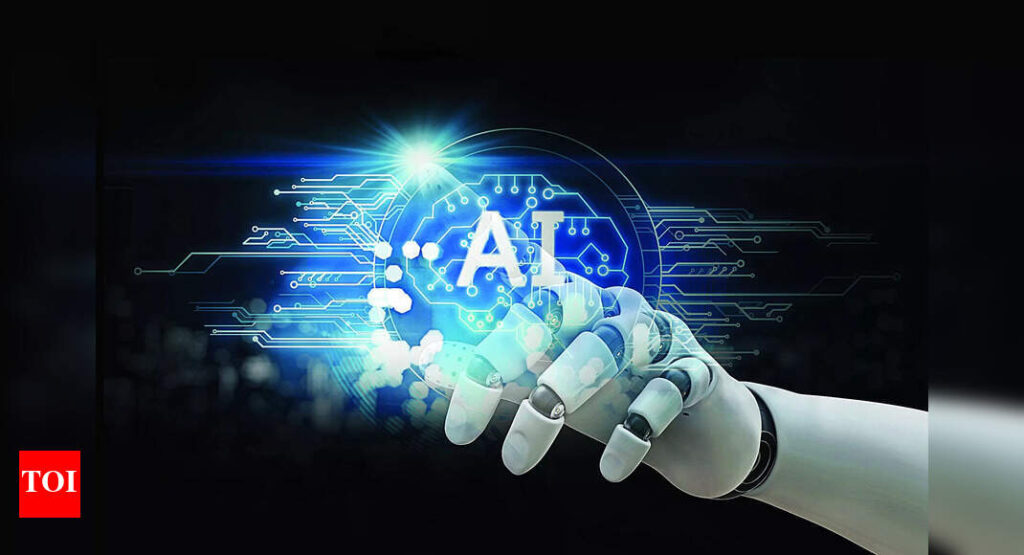Why America’s parents are losing sleep over AI and their children’s careers

It is 2025, and the future no longer feels like a distant horizon, it is an algorithm away. Dinner-table conversations that once revolved around medical school or civil services have shifted to something more existential: Will my child even have a job in the age of AI? The question is not just rhetorical; it is laced with a collective unease that now defines the modern parent.Artificial intelligence has become the quiet disruptor of the American household, blurring the boundary between ambition and apprehension. According to Zety’s AI Readiness Gap: 2025 Parent Outlook Report, nearly every parent surveyed, 97%, fears their child’s career could be disrupted or replaced within the next decade. The finding is less about numbers and more about the psychology of uncertainty: The fear that human aspiration itself may soon be competing with code.
A new kind of parental panic
In the post-pandemic years, AI has not only transformed offices and industries, but it has also infiltrated the very architecture of parental thinking. What once defined “a good future” has been rewritten. A stable job, a predictable trajectory, and a profession to retire from all seem quaint in the face of an evolving digital frontier.The Zety report reveals a stark picture: 54% of parents believe their children will face fewer career opportunities than they did. One in three doubts schools are equipping students with the skills to survive in an AI-driven world. As automation begins to redraw economic maps, 71% of parents admit they are, or plan to be, heavily involved in steering their children’s career paths.This isn’t the usual helicopter parenting; it’s crisis management in an algorithmic age.
Education’s AI blind spot
The American education system, long accused of trailing behind technological change, now finds itself under sharper scrutiny. Parents are questioning not only what their children are being taught, but whether it will matter at all.Thirty-six percent of parents surveyed believe that schools are failing to prepare students for AI-era careers. Coding, machine learning, and data analytics, once considered niche, are now viewed as foundational literacy. Parents are not merely hoping for digital literacy; they are demanding AI fluency.Yet, beneath this push lies a quiet irony: While parents race to future-proof their children, many educators are still grappling with how to integrate AI responsibly into classrooms. The “AI-readiness gap” is as much about pedagogy as it is about panic.
Reskilling: The new rite of passage
For today’s children, the promise of a lifelong career has been replaced by the inevitability of lifelong learning. A striking 97% of parents acknowledge that their children will need to reskill multiple times during their working lives as suggested in the report. This shift signals not just a technological evolution but a cultural one, where adaptability trumps expertise, and curiosity becomes currency.Parents, once proud of stability, are now preparing their children for fluidity. The modern résumé is expected to evolve like a software patch, constantly updated, never truly finished.
The new hierarchy of hope
Surprisingly, amid fears of AI displacement, a subtle transformation is taking place in how young Americans view work itself. The report notes a renewed interest in skilled trades, with 29% of parents saying their children are most drawn to hands-on professions like electricians or plumbers, even more than corporate jobs (28%).It’s an unanticipated twist: As AI conquers boardrooms and data centers, some families are rediscovering the dignity of manual skill. Government and public service roles still attract 23%, while 10% lean toward entrepreneurship and 8% toward creative fields. Social media creation, often romanticized online, barely registers at 2%, hinting at a quiet disillusionment with the digital dream.
A future still worth building
For all their fears, parents’ anxieties about AI may also conceal a deeper faith in human reinvention. The very act of worrying about their children’s adaptability suggests belief in their resilience. AI may redefine jobs, but it cannot yet replicate empathy, imagination, or the uniquely human drive to adapt.As parents lose sleep over algorithms, they might also be witnessing something extraordinary: a generation preparing not just to survive technology, but to shape it. The anxiety, in that sense, is not just fear, it is foresight.






